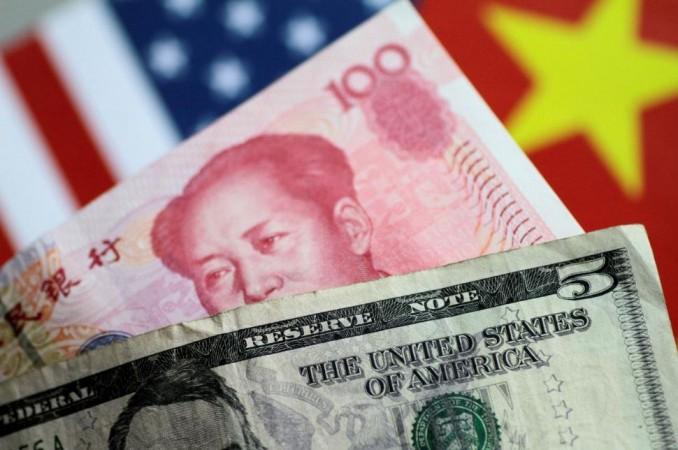
The United States officially named China a 'currency manipulator' late on Monday as trade tensions between the countries escalated. The move threatens to damage financial markets at a time when the global economy is weakening already.
US Treasury Secretary Steven Mnuchin issued a statement after the value of the Chinese currency fell below the seven-yuan-per dollar limit. The currency drop was the steepest in 11 years.
A weak Chinese currency makes US products more expensive while making Chinese products more attractive in foreign markets. The move can offset the planned 10 per cent tariff imposition on imports worth $300 billion, that is scheduled to be implemented from September 1. The new tariff will be in addition to the $250 billion Trump has already targeted.
This is the second time China has been designated a manipulator. It was accused of manipulating currency for the first time in 1994.
The US defines currency manipulation under a 1988 currency law. The law states that "Countries manipulate the rate of exchange between their currency and the United States dollar for purposes of preventing effective balance of payments adjustment or gaining unfair competitive advantage in international trade."
But while the purpose of such a law, as explained by Reuters, is to promote negotiation on the issue of foreign exchange practices, trade relations between the US and China have failed to come to a mutual agreement for the past two years.
The designation is not expected to have any effect on the economic relations between the two countries as the International Monetary Fund earlier this month had already stated that the yuan's valuation was in line with China's softer economic fundamentals, though the dollar was overvalued by 6 percent to 12 percent, reported Reuters.
The designation of China as a currency manipulator has been an integral part of Trump's "day one" agenda in his 2016 presidential campaign. But despite Trump's push to make America-friendly trade terms with China by putting pressure on the Chinese trade economy, Mnuchin and former aides such as the former chief economic advisor to Trump, Gary Cohn, and White House trade adviser Peter Navarro have thwarted his efforts in the past.
China's Response
The Chinese government on Monday asked state-owned firms to stop their purchasing US farm products, according to Xinhua state agency.
The halt in agricultural purchases will affect the rural US states that are also Trump's political base.
Zippy Duvall, president of the American Farm Bureau, told The Washington Post that China's move is "A body blow to thousands of farmers and ranchers who are already struggling to get by."
Agricultural exports to China fell $1.3 billion during the first half of the year, Duvall said adding that the organization fears it will lose access to a market that was estimated to be worth almost $20 billion to farmers in 2017.
China had previously imposed retaliatory tariffs on US products worth $110 billion especially targeting soybean and other key agricultural products.
Trump introduced two packages of farm aid worth $27 billion to help rural farmers who were hit as a result of the ongoing trade war between the two countries.
China's central bank said that the drop in yuan's value was "trade protectionism" against the planned imposition of additional US tariff that is scheduled to be implemented from September 1.
The state media also stated that Beijing would "not rule out the possibility of levying additional tariffs" on US agricultural imports. It asserted that the US President's plan to impose the $300 billion tax on Chinese imports "seriously violated" a cease-fire agreed between Trump and Chinese President Xi Jinping in June.









!['Had denied Housefull franchise as they wanted me to wear a bikini': Tia Bajpai on turning down bold scripts [Exclusive]](https://data1.ibtimes.co.in/en/full/806605/had-denied-housefull-franchise-they-wanted-me-wear-bikini-tia-bajpai-turning-down-bold.png?w=220&h=138)



